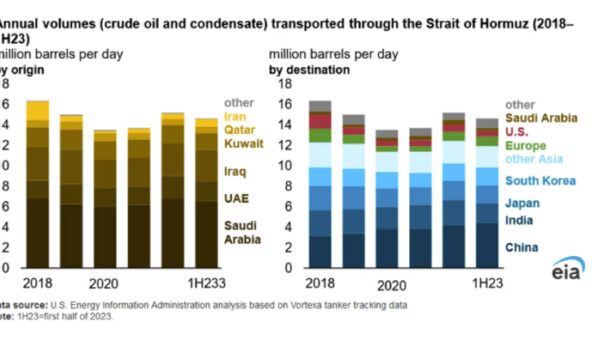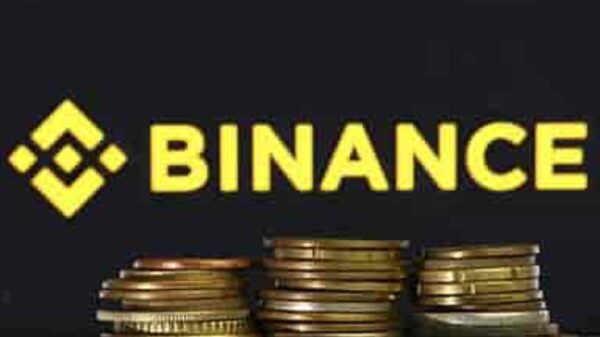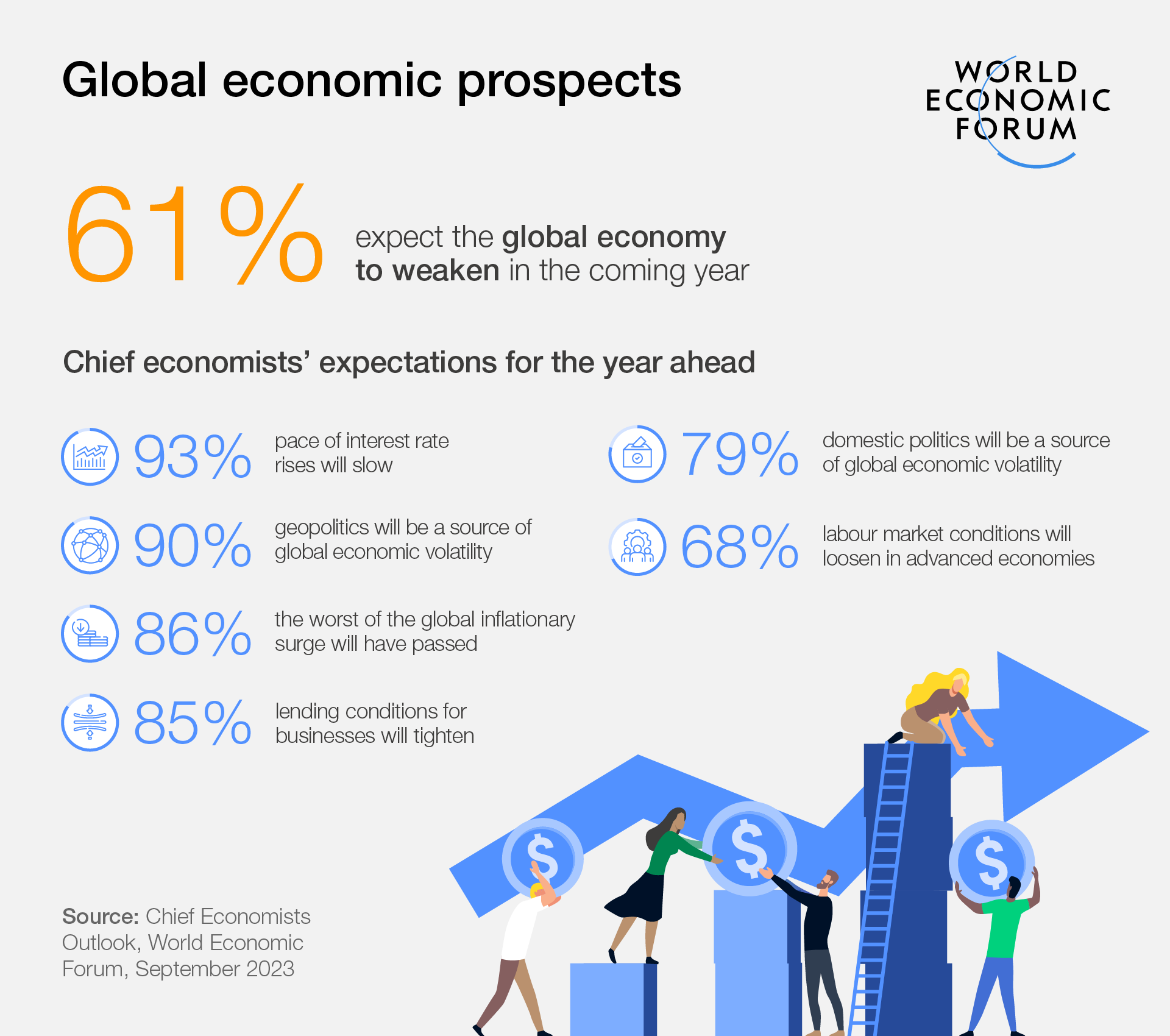The anticipated global economic shift
Major banks worldwide are now envisioning a noticeable deceleration in global economic growth for the upcoming year. The latest reports from a Reuters poll have projected a drop to 2.6% growth in 2024, compared to a 2.9% forecast for the current year.
Factors contributing to this forecasted slowdown encompass elevated interest rates, escalating energy costs, and a decrease in the growth momentum of the world’s two largest economies.
Diving into Economic Projections
While economists anticipate the global economy to skirt a recession, concerns have been raised about the possibility of “mild recessions” materializing in Europe and the UK.
The United States appears to be on track for a soft landing, yet the uncertainty surrounding the Federal Reserve’s trajectory in tightening monetary policies casts a shadow on its future outlook.
Simultaneously, China’s growth trajectory seems poised for a weakening phase, fueled further by corporations seeking cost-effective production alternatives.
China’s Economic Dynamics and Policy Shifts
China, a focal point of economic interest, seems to have reached a plateau in rate cuts as policymakers explore alternative avenues to bolster the economy and stabilize credit growth entering the new year.
The recent stance of the People’s Bank of China (PBOC) to maintain benchmark lending rates aligns with market expectations. However, the emphasis is now shifting from rate reductions to coordinating credit extensions and fortifying targeted sectors to stimulate domestic demand and bolster confidence.
Balancing Credit Growth and Economic Momentum
The pivot in focus was unmistakable when the PBOC and other financial regulatory bodies urged the country’s major lenders and asset managers to fulfill “reasonable” funding requirements for property firms.
Their directive stressed the importance of coordinated credit growth, signaling that a stable expansion in credit could serve as a catalyst for economic resurgence.
Notably, credit growth surged in the initial post-pandemic phase but has since waned due to subdued borrowing demands.
Economic Strains in Major Economies
Across the Pacific, the concerns in the world’s largest economy, the United States, are discernible. American consumers are increasingly resorting to tapping into their retirement savings to cover housing and medical expenses amidst mounting cost-of-living pressures.
Recent data from Fidelity Investments highlights a rise in hardship withdrawals, showcasing the strain faced by individuals to evade foreclosure or eviction and to manage medical costs.
Euro Zone’s Economic Landscape
Meanwhile, the Eurozone is grappling with persistent economic challenges that suggest an impending recession. Private-sector activity surveys indicate a prolonged economic downturn, with S&P Global’s purchasing managers’ index reflecting a consistent contraction for the sixth consecutive month.
This economic stagnation contrasts with previous growth forecasts, raising concerns about the European economy’s resilience in the face of interest rate hikes and escalating political tensions.
Insightful Perspectives on Economic Trends
Economists and experts voice concerns about the Eurozone’s economic trajectory, underscoring vulnerabilities in the region’s top economies.
Despite this, recent German data hints at a potential easing of contraction, instilling some optimism about the return to growth in the Euro area’s largest economy. While the PMI figures offer a glimmer of hope, they also reveal a broader weakness prevalent across the region.
Nigeria’s Economic Policy Shaping Up
Shifting focus to Africa, Nigeria’s central bank, under the stewardship of Olayemi Cardoso, is poised to adopt a policy tightening approach in the next two quarters to manage inflation. With inflation hitting a staggering 27.33%, Cardoso emphasizes the need to strengthen banks’ capital while discontinuing unconventional policies that blurred the lines between fiscal and monetary policies.
Reform initiatives for Economic Stability
Cardoso outlines a vision for Nigeria’s economy to reach $1 trillion within the next seven years, underscoring the imperative for enhanced capitalization among lenders. Despite current economic challenges, the country’s recent growth of 2.5% in the third quarter and a projected 3.9% growth in the fourth quarter signal potential opportunities for growth.
Conclusion
As the global economic landscape navigates uncertainties, the proactive measures undertaken by financial institutions and policymakers worldwide remain pivotal. From China’s strategic shift in monetary policy to Nigeria’s focused efforts on curbing inflation, these actions will likely play a crucial role in shaping the economic trajectory for the upcoming year.
Source: Read more at Reuters
























































You must be logged in to post a comment Login